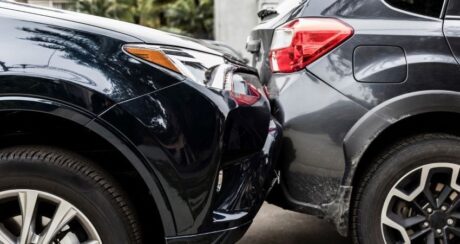Many or all of the products and brands we promote and feature including our ‘Partner Spotlights’ are from our partners who compensate us. However, this does not influence our editorial opinion found in articles, reviews and our ‘Best’ tables. Our opinion is our own. Read more on our methodology here.
When you buy a used car, you may be offered an extended warranty, but you might not be sure what it is or whether you need it.
Extended car warranties are optional, but they can come in handy if you find a fault in your car that needs expensive repairs as they can cover some, or all, of the cost. However, you might wonder if you really need to pay for a warranty, especially when you consider all the other things you need to pay for when you have a car, such as insurance and tax.
Read on to learn more about extended car warranties and their pros and cons, to help you work out if it’s worth getting one for your car.
What are extended car warranties?
An extended car warranty is a type of insurance policy that covers the cost of parts and repairs if you find a mechanical or electrical fault in your vehicle.
For example, they may cover things like the engine, steering, suspension, brakes, clutch, air-conditioning, and electricals, including in-car audio and sat-nav systems. So, if a problem appears in one of these areas, you may be able to claim the cost of some or all of the parts and labour needed to fix the problem.
Warranties don’t cover frequently-used parts like brake pads and discs, tyres, clutch facings or windscreen wipers as they experience a lot of wear and tear and will need replacing fairly regularly.
While all new cars will come with a manufacturers’ warranties, extended warranties are an optional policy you can choose to purchase once this expires. Without any warranty, you would have to pay for any repairs your car may need.
Some manufacturers will offer extended warranties once their initial warranty expires, but they are also available from dealerships when you buy a car, as well as independent online providers.
Extended car warranties may also be called used car warranties or aftermarket warranties.
Is an extended car warranty worth getting?
Whether you should get an extended car warranty or not is a personal decision. It will depend on how old your car is, how reliable it is, and how well you would be able to manage if your car encountered a problem that needed fixing.
You might want to consider taking out an extended car warranty if:
- The manufacturers’ warranty on your current car is coming to an end and you want to continue to have cover.
- You don’t have much money saved in an emergency fund to be able to pay for any unexpected repairs.
- You want peace of mind that you are covered should certain problems appear in your car.
If you do decide to take out a car warranty, it’s possible that you would never need to make a claim.
However, this doesn’t mean that a warranty is a waste of money. You can’t predict the future or what repairs your car may need so, if you do get a problem with your car, that one claim could make the cost of the warranty worth it. The nature of insurance is that you are buying peace of mind.
Not everyone will want a car warranty, so you may think twice about getting one if:
- Your car has some time left on its manufacturers’ warranty. Even if you buy a used car, it may still be covered by this warranty.
- You could comfortably afford to pay for any emergency repairs yourself.
- Your car is considered to be a reliable model that doesn’t get many problems.
- Your car is relatively old and/or has a high mileage. Warranties for these cars may come with more terms and exclusions, so you may find it harder to make a successful claim if your car does run into a problem. Warranties will also only cover cars up to a certain age.
What things do I need to consider?
When deciding whether an extended car warranty is worth it or not, you will need to carefully look at the terms of each policy. Warranties can be confusing to understand, so it’s important you understand what you would be paying for to help you decide whether it is worth getting an extended warranty.
Used car warranties typically don’t offer as comprehensive cover as manufacturers’ warranties. They can have more exclusions and stricter terms and conditions, so you shouldn’t assume that every mechanical or electrical failure your car could get will be covered.
For example, if a part of your car that isn’t covered by the warranty fails and damages a part that is covered, not all warranties will pay out. This is known as consequential loss, and is one of the terms to look out for when comparing policies.
More comprehensive car warranties will cover more faults, such as some cover for wear and tear, but they will be more expensive. You would have to weigh up whether the extra cost is worth paying, or if it would be cheaper to simply pay for any repairs yourself if a problem appears.
You should also look at the claims limit of a policy – the maximum amount that the warranty will pay out for repairs – as well as the excess you need to pay whenever you make a claim. This will give you an idea of how much you could still need to pay even if you have a warranty, and so could help you decide whether it is worth paying for a warranty.
It’s also important to bear in mind that, whether you have a warranty or not, you will still have certain statutory rights under the Consumer Rights Act 2015 if you buy a car from a dealer. For up to 30 days after your purchase, you can return your car if it’s faulty. After this period, you may be entitled to get a repair, replacement, or partial refund.
Do I need an extended car warranty if I have breakdown cover?
While there is some overlap between car warranties and breakdown cover, they are not exactly the same.
The main difference is that car warranties cover the cost of parts and repairs for certain mechanical faults, while breakdown cover specifically covers the cost of emergency assistance and recovery if you break down. Breakdown cover doesn’t normally cover the cost of any labour and parts needed to fix the problem, although it may be offered as an optional extra.
However, breakdown cover can also cover a greater range of problems. While car warranties will exclude problems relating to “consumables” like tyres and batteries, you can still make a claim on your breakdown cover if you have a flat battery or puncture that is preventing you from driving.
So, if you want peace of mind that you are covered in the event of a break down and for any necessary repairs, it may be worth looking for an extended car warranty which includes some levels of roadside assistance in its cover, or by taking out a separate breakdown cover policy in addition to a car warranty.
Where can I get an extended car warranty?
You can get an extended car warranty from a number of places.
Firstly, if you currently have a car that’s covered by a manufacturers’ warranty, you may be able to extend this for one year or more. This will depend on the manufacturer and you may need to meet certain requirements, such as getting your car serviced at one of their dealerships.
If you’re buying a used car from a dealer, you will probably be offered some kind of car warranty. These will be of varying lengths, and some providers may include a limited warranty in the cost of your car then give you the option to extend this for an added charge.
However, you don’t need to take out the warranty offered by a dealer. They may not always be the best option and can be more expensive than policies from independent providers and can come with stricter terms as, for example, you may need to get your car serviced at one of their dealerships during the term of your warranty.
If you do decide to get an extended car warranty, it’s worth comparing cover online from independent providers to see exactly what each policy covers, what’s excluded, and how much it costs. This will help you decide which warranty is most suitable for you and whether it is worth getting.
Image source: Getty Images
Dive even deeper

What is a car warranty and what does it cover?
A car warranty covers the cost of the repair bill if you need to fix a problem with your car. It will often cover parts including the engine, gearbox, suspension, brakes and steering, although details will differ between policies.

What Are My Rights When I Buy a Used Car?
Thanks to the Consumer Rights Act 2015, everyone has some statutory rights when they buy a used car from a dealer. If your car is faulty, you may be able to return it, depending on when you bought it.

What is Breakdown Cover and What Does it Include?
Breakdown cover can act as a safety net in case your car breaks down, whether you’re several hours into a long journey or you’re commuting to work. In this guide we discuss the protection that breakdown cover offers and what exclusions may apply.







